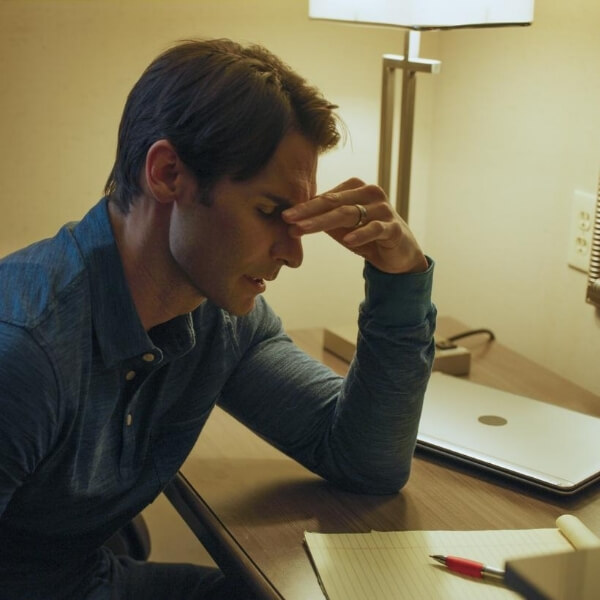In your attempts to maintain purity from pornography you’ve probably asked yourself, “Is every slip a relapse? Does every bad choice mean I’m ‘starting over’? I feel trapped. How can I not expect myself to be perfect for the rest of my life without making excuses for myself?”
You can see why relapse is such a difficult subject. A discussion of relapse easily gets caught up in an all-or-nothing mindset.
On one hand, we can expect to relapse many times in the journey of recovery. There are ups and downs in every difficult journey. On the other hand, we don’t want to expect to fail. We want to face every moment with the expectation that we’ll rely on God to make healthy, God-honoring choices.
With that said, here are the six principles that support my thoughts on relapse:
- We will face relapse.
- Relapse is the recurrence of a behavior we have committed to change.
- More dangerous than relapse is dishonesty and hiding.
- Dishonesty and hiding are the difference between a relapse slip (short) and relapse slide (long).
- Relapse begins to end when honesty begins.
- We are more likely to be honest about something we’ve openly discussed. That’s why having an Ally who receives your Covenant Eyes report is vital for both initial purity and circumventing relapse.
Relapse can be described in four phases. The presence of an early phase does not make the latter phases inevitable. Our goal is use principle five (above) to circumvent at the earliest possible phase (below). The sooner we’re honest, the better.
Phase One: Complacency
“I just want a break from being good.”
It is usually our attitude that goes sour before our thoughts or our actions. Initially, we just accept that the process of pursuing purity is hard and bear through. That is actually good. Change is hard. Perseverance is needed.
So, what’s the problem?
If we’re honest with a friend, there’s not a problem. The point of identifying complacency as the initial phase of relapse is to cultivate conversation, not condemnation. Early honesty with people in your support network is the best response to this fatigue. Don’t try to press through in private. Simply saying, “Hey, my attitude isn’t great right now. I’m committed to purity, but I feel ‘off.’ Will you pray for me?” is great way to counter phase one relapse.
Phase Two: Confusion
In phase two, a bad attitude becomes jumbled thinking. It has been said, “Worldliness is what makes sin look normal and righteousness look strange.”
The further we get into temptation, the more this dynamic affects our thinking.
We begin to view “healthy choices” as a “burden.” We begin to view “unhealthy choices” as “moments of freedom.” We begin to view “supportive friends” as “people who expect too much.” When this disorientation begins to emerge, be honest ASAP. This is when we say to a friend, “I’m wrestling with more than a bad attitude. I’m beginning to view good choices as a burden and supportive friends as obstacles.”
Don’t let confusion reign. The logic of temptation only makes sense in the privacy of our own head. When we speak what we’re thinking out loud to someone we trust, the logic of temptation falls apart. This is the last link in the chain of relapse, when you can confide in a friend without experiencing the guilt of having to confess for sin.
Phase Three: Compromise
Phase three is often fueled by self-pity, denial, or defiance. We begin to think, “I deserve my sin,” as if pornography gave more relief than it created a burden. Short-term, that may be true. But if you didn’t know it was false long-term, you would have never signed up for Covenant Eyes.
Sin is always trading dimes (smaller coin of more value) for nickels (larger coin of less value). It seems like a good deal, but it isn’t.
Frequent warning signs of the compromise phase of a relapse are:
- More frequent preoccupation with fantasy thinking
- Growing sense of irritability about the “restrictions” of purity
- Beginning to explore ways to get around your accountability software
- Compromising with your eyes in public or with television
- Thinking about when you engaged with pornography as “the good ole days”
Phase Four: Catastrophe
Destructive choices destroy. There is no way around that. When we fail to acknowledge compromise, catastrophe will get our attention. Some version of whatever crisis brought you to initially confide in a friend and install Covenant Eyes will re-emerge. It is not a matter of “if,” but “when.”
While our goal is to interrupt a potential relapse before it reaches the catastrophe phase, don’t allow shame or pride to prevent you from reversing the impact of your choices. Even if we’ve begun to experience some type of crisis, the sooner we respond with repentance to God and confiding in a friend, the better.
Read I Corinthians 10:13. We often get frustrated with the phrase, “God will not let you be tempted beyond your ability.” It doesn’t just mean the type or intensity of temptation, but also means at any point in the temptation cycle. Too often we conceptualize a fictional “point of no return” in our battle with temptation. If a “point of no return” exists, it is the point at which we decide not to be honest with God, ourselves, and others.
The grace of God means there is always hope in honesty about our sin. What you should realize from this reflection is that the temptation to hide our sin during relapse is actually what perpetuates and magnifies the impact of our sin. If you are willing, God will always give you strength to be honest.








I really appreciate this article. I am going through a tough time right now, completely of my own creation, and had a recent relapse that was really damaging. I would take it back in an instance if I could, but this article is a good reminder that, while forgiven sin still has consequences, there is a clear path forward. Repentance, embracing grace, and asking for others help is the path forward, rather than wallowing in your own shame which will only lead towards more sin.
Love the 4 phases and the last 5 principles. Not so sure about the first principle. Maybe it’s just the wording.
“We will face relapse”…..We WILL face that choice and we MAY relapse. But many of us who used to relapse no longer do so. But I totally agree with the others. Be honest. If we slip, don’t slide. We need to confess to God and to our brothers in Christ! Share how we are tempted with those brothers as well. View those temptations as trials that drive us to have more faith in our faithful God, who will deliver us.
I firmly believe that there is no relapse in recovery. If you are continuously relapsing you are not in recovery. Sex addiction cannot be defeated with praying and accountability software. Sex addiction is not just about the addict it is also about the betrayed spouse. Let’s be honest and call relapse what it is and that is abuse and trauma against the partner. Relapse is cheating on the partner. Sex addiction in its many forms is a psychological disorder. When we try to narrow it down to sin and behavior management we are doomed to fail. Recovery is challenging and takes full commitment to changing every aspect of your life. Recovery is making the decision to fight it from every side. I had faith that God would guide me and put people in my path that would help me in my battle. I found a CSAT that helped me face and resolve my childhood trauma. I found a 12 step group that helped me develop healthy connections. I educated myself by reading anything that I could find on sex addiction. I gave up television and all social media. I developed new habits and a new way of healthy living. I am free from my addiction now and have a better healthy marriage.
Thank you for sharing your perspective. And for your commitment to change.
JP,
I totally agree with you. If you are continually relapsing, you are not in true recovery. This idea is giving the addict an excuse to relapse, and is an unhealthy concept. There DOES NOT have to be relapse in recovery, and it should not be the expected norm, far from it.
This article is addressing what Im go through. I have covenant eyes software installed my P.C. and my cell phone. I wish there was a way I could install it onto my Kindle tablet. That way there will be more restrictions when I’m reading comics that might have explicit materials.
Have you thought about just getting rid of the Kindle tablet all together and just don’t read the comics. Just a suggestion.